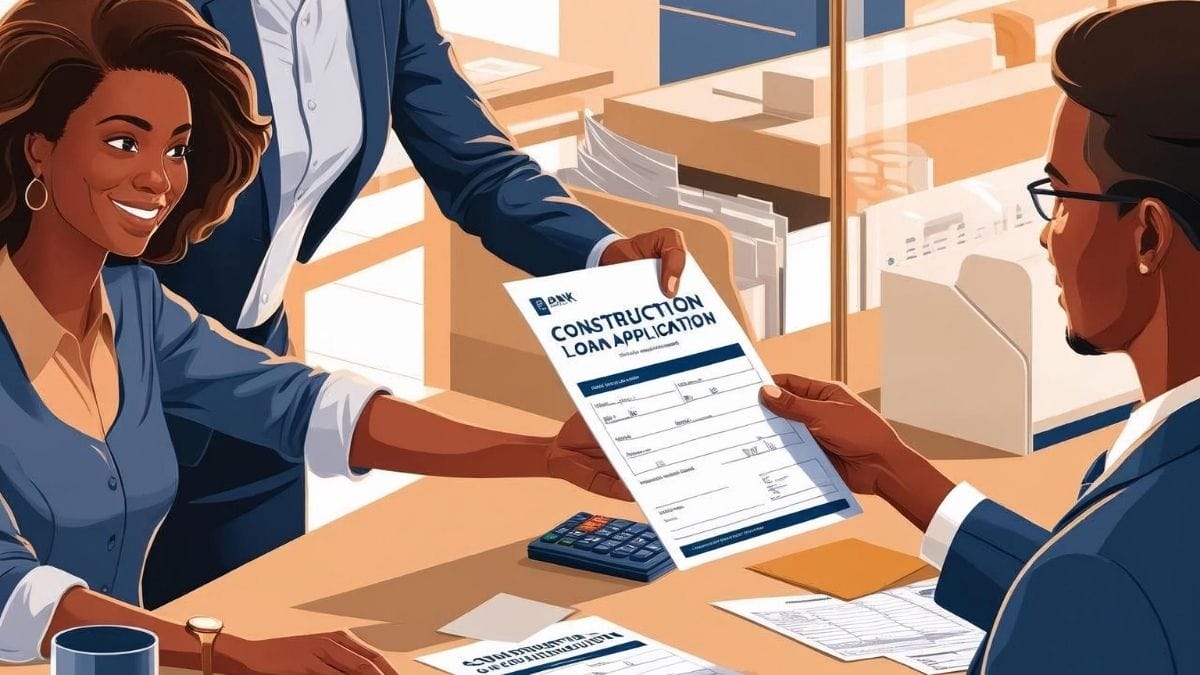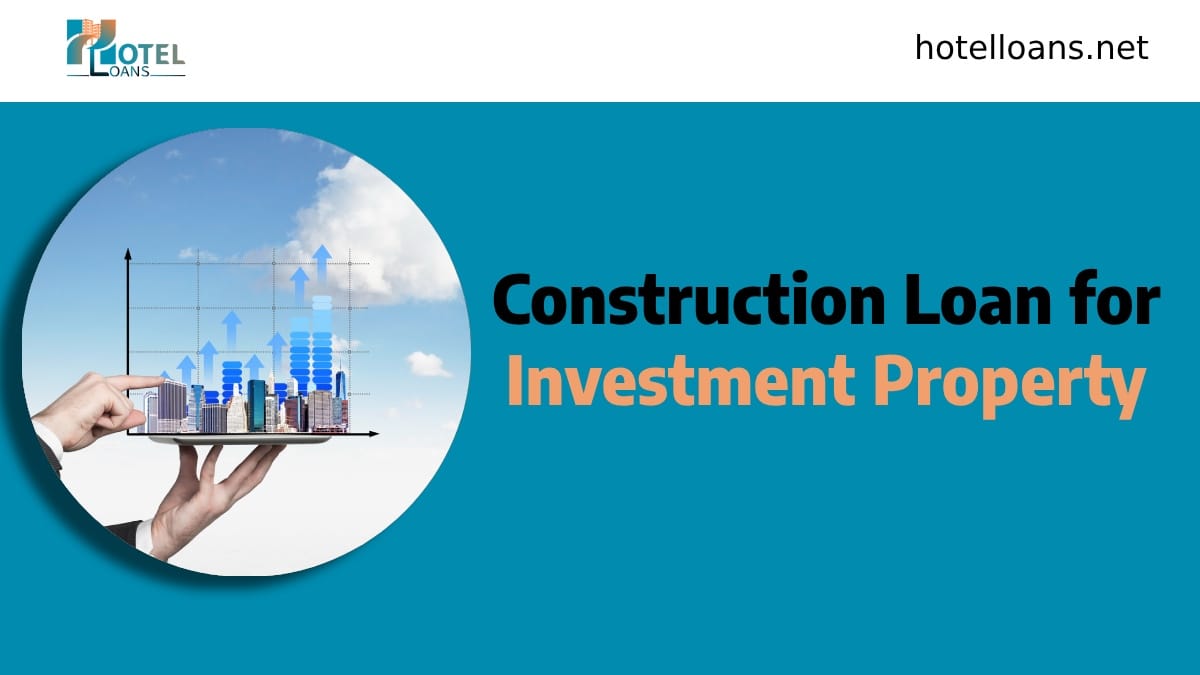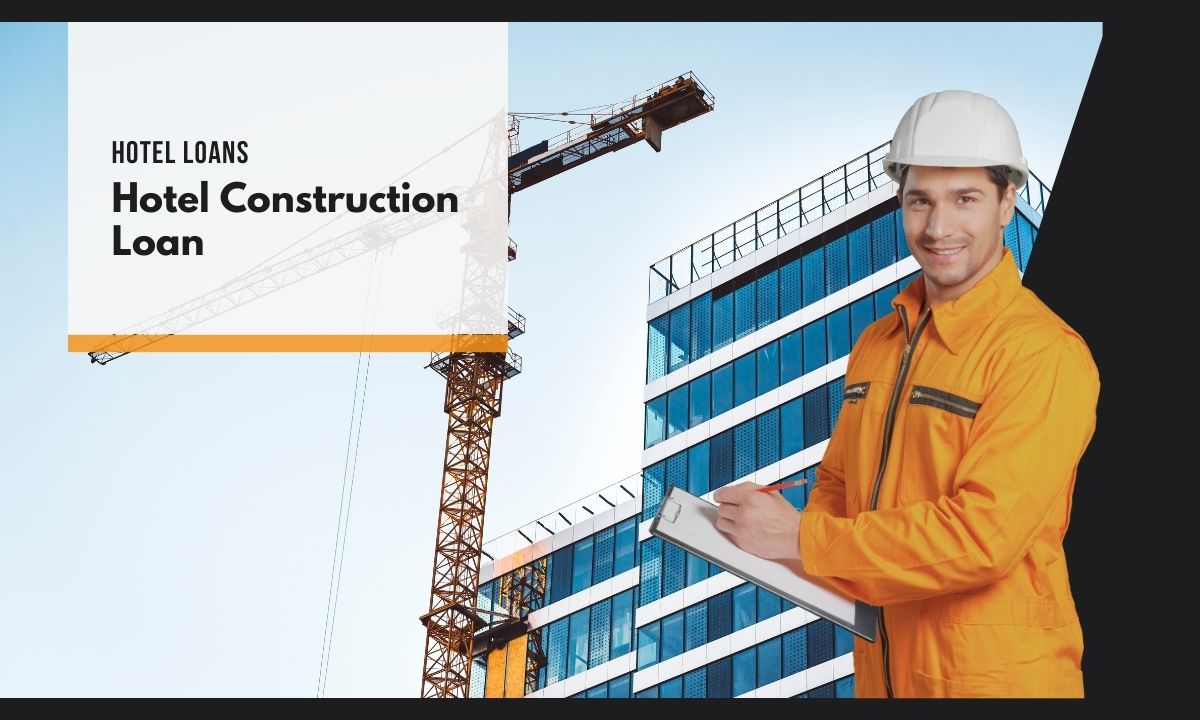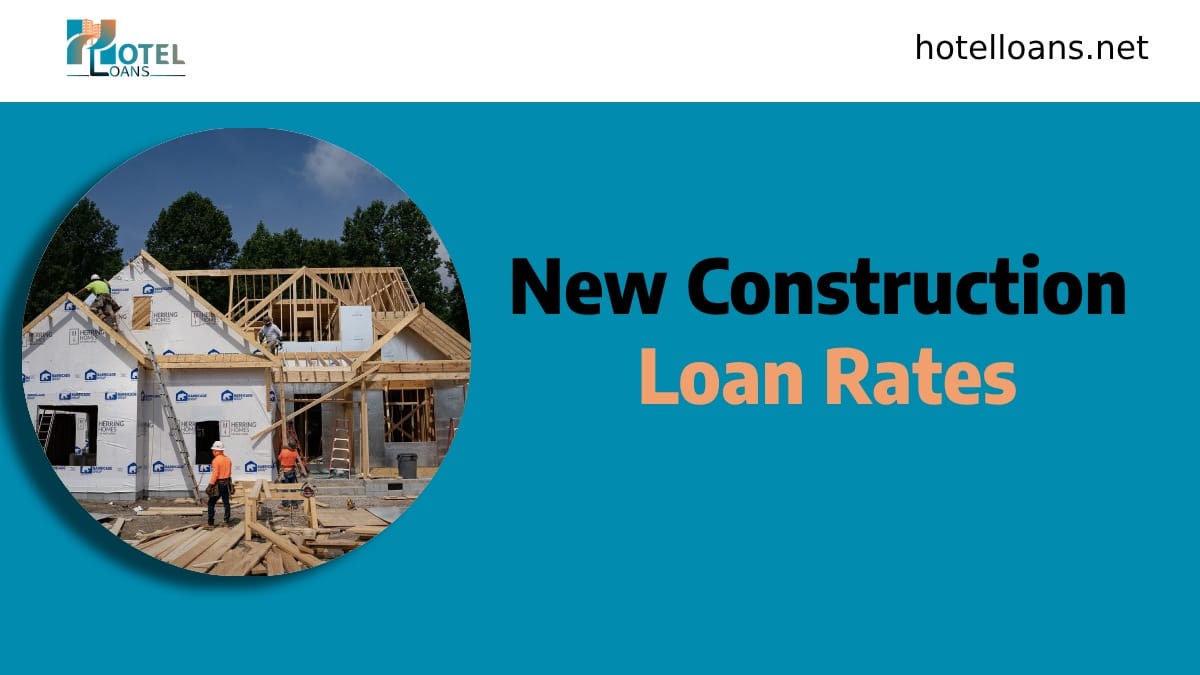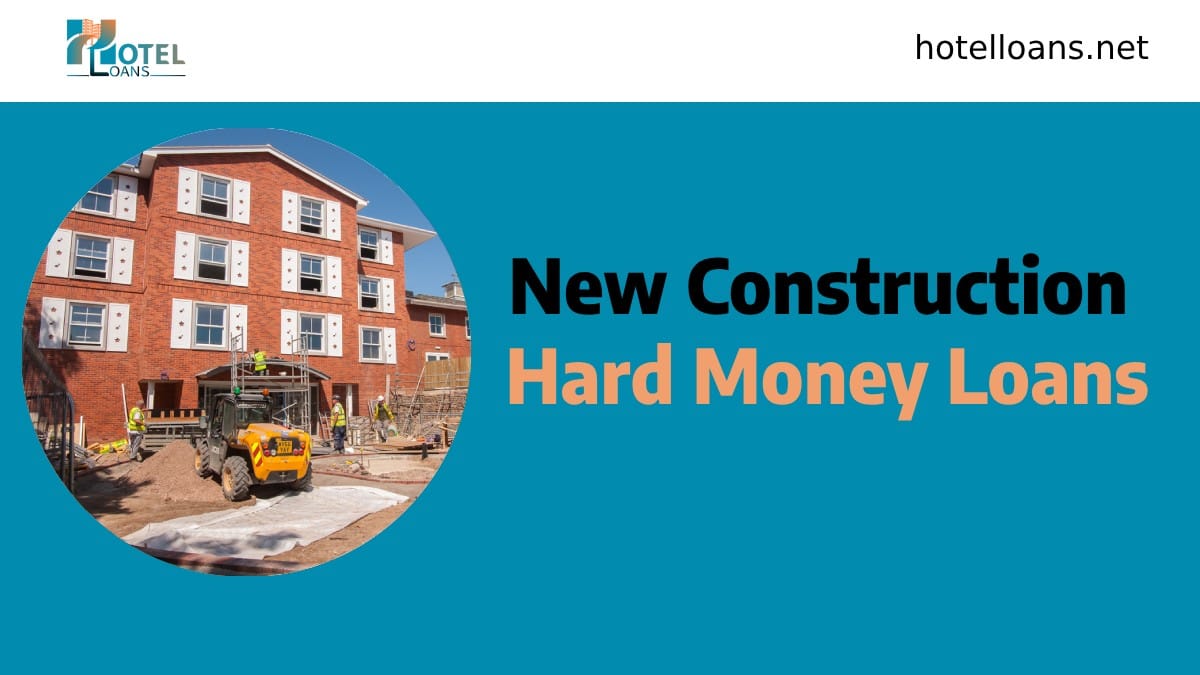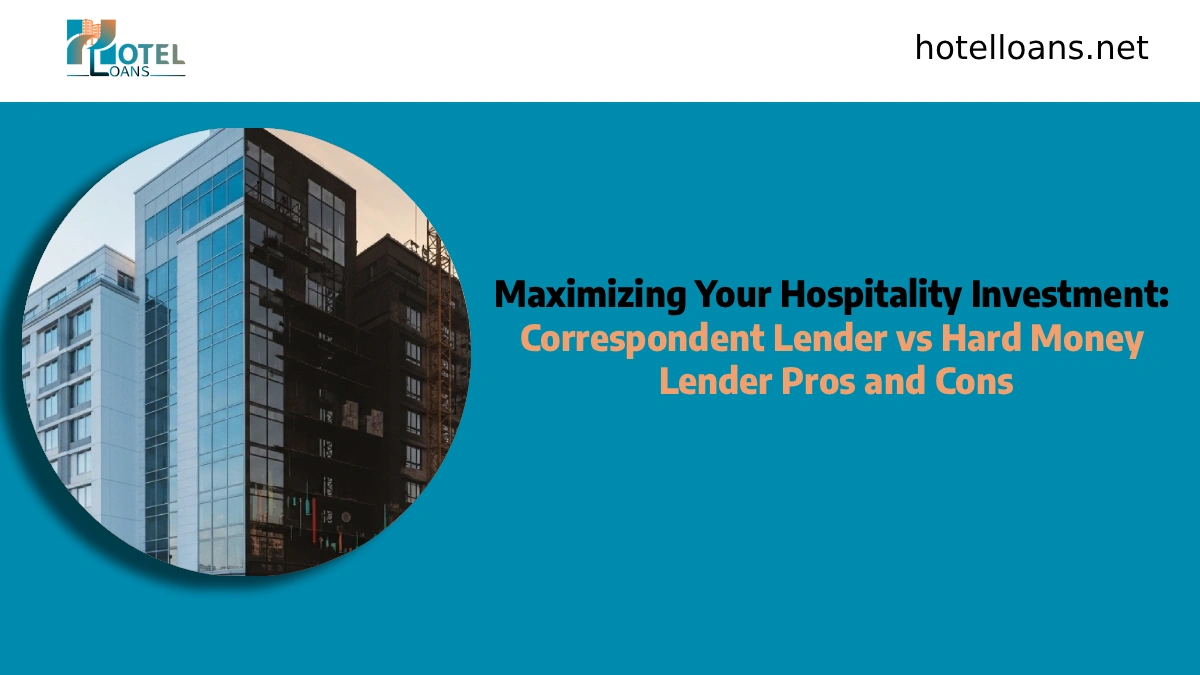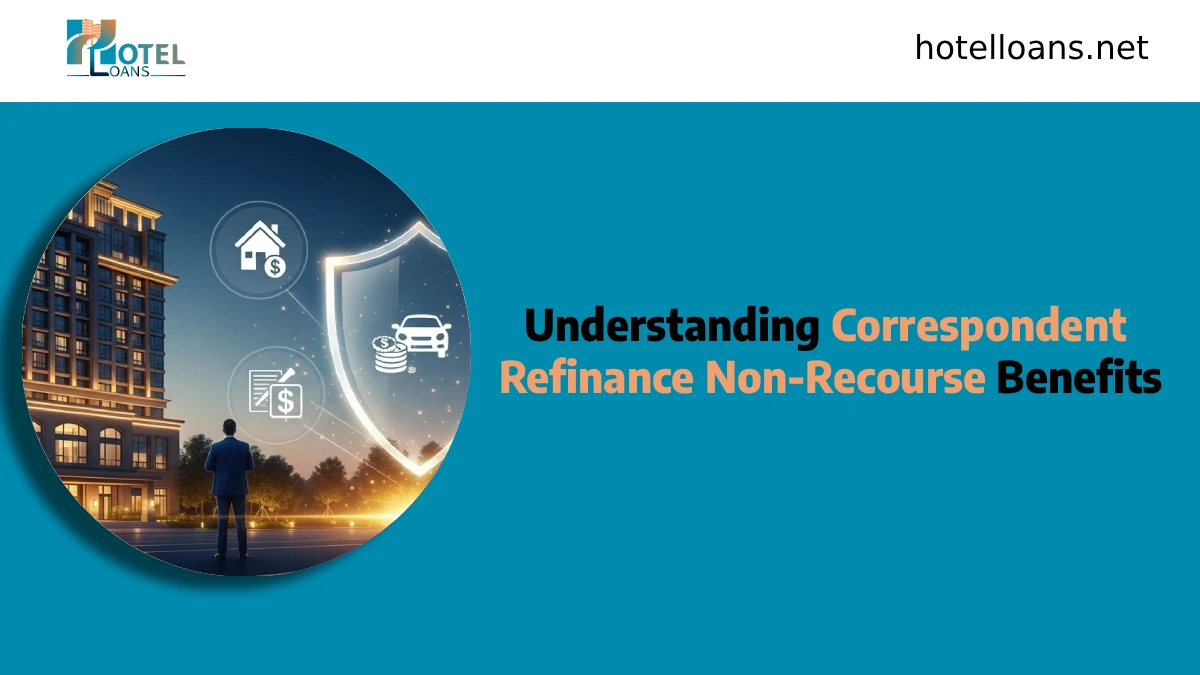Imagine the dream: a custom-built property that meets any family’s needs or a busy new hotel ready to welcome guests. You can feel the excitement, but then reality sets in: How will you pay for something like this? You’re not getting an already-built house; you’re starting from scratch, meaning you need a special construction loan. A traditional mortgage gives you one lump sum for a finished asset. On the other hand, a construction loan gives you money in stages as your project progresses.
Figuring out how to “apply for construction loan” can be like figuring out a complicated blueprint. The list of needs is long, and the process isn’t always straightforward. It does not have to be that way. If you use HotelLoans.Net as your guide, you’ll get 30 years of specialized underwriting experience, especially in hotel real estate. The process doesn’t have to be complicated.
The following 7 essential tips will give you the confidence to talk to lenders and successfully “apply for construction loan.” Let HotelLoans.Net make it easier for you to turn your dreams into reality.
Table of Contents
ToggleUnderstanding the Basics of Construction Loans
What is a Construction Loan?
A construction loan is a special loan used to pay for building a new home or making major repairs to an existing one. In contrast to a permanent mortgage, which gives a lump sum for a finished asset, construction loans are usually only good for 12 to 18 months. The main difference is how the money is given out. Instead of a single payment, the money is given out in small amounts, called “draws,” as different building parts are finished and approved.
Borrowers usually only pay interest on the money they borrow while the project is being built. This keeps monthly costs low until the building is ready for use—construction loans work by matching the amount of money given to the progress being made on the building.
Types of Construction Loans
When exploring construction financing, you’ll generally encounter two main types:
Construction-Only Loan
With a construction-only loan, you can get the money you need for the building part alone. This loan will become due when the project is finished, and you will need to get a new, permanent mortgage to pay off the construction loan.
- Pros: You can choose your permanent lender after construction, which lets you shop for the best rates once the property’s value is known.
- Cons: Two separate loan applications and closing steps could mean more paperwork and extra fees.
Construction-to-Permanent Loan
A construction-to-permanent loan is a single loan that becomes a regular mortgage once the building is done. It is often seen as the easier choice. With this streamlined method, you only have to go through one application and the finishing process.
Benefits: This kind of loan saves you money on closing costs and paperwork because the change is usually made automatically once the certificate of occupancy is given. It makes it easy to move from the building process to long-term ownership.
Who Apply for Construction Loans?
Construction loans are essential for many different types of projects and clients. People and investors building new homes and starting up big hospitality projects like hotels, motels, resorts, and restaurants are our main clients. These loans are essential for investors who fix and flip (renovate and sell for a profit), fix and hold (renovate to improve value for future sale), and repair and rent (renovate buildings for long-term rental income). So they’re not just for new construction. A construction loan is usually taken out by people who need to build something, do significant repairs, or fix up something.
Tip 1: Get Your Financial House in Order
Securing a construction loan begins with demonstrating strong financial health. Lenders need assurance that you can manage the debt, starting with thoroughly reviewing your finances.
A. Credit Score Matters
Your credit score is a vital sign of your financial responsibility. When giving out construction loans, lenders usually want to see that you have good credit. A minimum FICO score of 700 or higher is typical. However, some specialized lenders might look at slightly lower scores if other factors make up for them. A higher number means the lender is less likely to lose money. Better interest rates and better loan terms may come from it. Paying your bills on time, lowering your debt, and not starting too many new credit accounts are all things you can do to improve your credit. Regularly checking your credit record for mistakes is also a good idea.
B. Debt-to-Income Ratio (DTI)
Another critical number that lenders look at is your debt-to-income ratio (DTI). To find it, divide your monthly loan payments by your gross income. Lenders use DTI to figure out if you can afford your monthly bills. Most lenders like a DTI of less than 43% for construction loans, but some like it even lower, around 36%. To find your DTI, add up all of your monthly debt payments, like your mortgage, car loans, credit card minimums, and school loans, and then divide that number by your monthly gross income before taxes. To lower your DTI, pay off more debt or bring in more money.
C. Down Payment Expectations
Construction loans usually need a larger down payment than regular mortgages. A conventional mortgage might require a down payment of 3–5%, but a construction loan usually needs a down payment of 20–30% of the total project cost. This more significant amount of equity lowers the lender’s risk on an asset that hasn’t yet been made. There are times when people who already own property can use the value in that property to cover some or all of the down payment needed. You can do this by refinancing your home for cash or getting a home equity line of credit (HELOC) on another property you own.
Tip 2: Solidify Your Construction Plans
Lenders will carefully examine more than just your finances. They will also consider the viability of your building project. Having a clear and well-thought-out plan for the project builds trust and is essential for getting a construction loan.
A. Detailed Construction Plans
It’s impossible to say enough about how crucial detailed building plans are. These aren’t just rough sketches; they’re the building blocks of your project. Your application must have professionally drawn blueprints, thorough instructions for every part of the build, and a complete list of all the materials used. These plans show the lender exactly what you want to build, ensuring that your plans match their risk estimate and valuation. Licensed architects and engineers with a lot of experience are very important because their professional seal adds authority, ensures the building is safe, and follows the rules. These detailed building plans are used to approve the loan and set up the schedules for future draws.
B. Accurate Budgeting and Timeline
Lenders want a reasonable budget that includes all costs, such as labor, materials, permits, and finishes. Importantly, your budget needs to include a “just in case” fund, which is usually 10-15% of the total project cost, to cover expenses or delays that were not planned for. Unexpected problems almost always happen during construction, and having a backup plan shows you’ve carefully thought things through. Along with the budget, there must be a clear building timeline with key milestones and estimated completion dates.
Lenders decide if your project is possible by looking closely at the budget and schedule to ensure they can be met and are suitable for the business. A budget that is too low or a timeline that is too long can be a red flag.
C. Vetting Your Contractor
Lenders care a lot about which contractor you choose. They need to know that your job will be finished on time, on budget, and up to professional standards. So, you must hire a licensed, insured worker with much experience. Lenders usually do their research and ask for your contractor’s financial statements, background of past projects, references, and proof that they are licensed and insured. This screening process protects their investment by ensuring a trustworthy, skilled professional controls your building project. A strong, well-vetted contractor partnership is a big help when getting a construction loan.
Tip 3: Understand the Loan Application Process
The application process for a construction loan can seem more complicated than a regular mortgage, but it will be much easier if you know what makes it different.
A. The Unique Application Process
The application process for a construction loan is unique because you’re financing a future asset, not a present one. This means we need to go into much more detail about the project. You must provide extensive documentation related to the build beyond your financial documents (credit, income, assets). This includes your detailed building plans, budget, and all the information about the contractors you’ve checked out. Before giving you money, lenders want to know exactly what you’re building, how much it will cost, and who will make it.
B. What Lenders Look For
Lenders mostly look at three things: the project’s feasibility (making sure the proposed construction is possible and has a good chance of being finished); the borrower’s qualifications (making sure you can afford the loan); and the contractor’s reputation (making sure the chosen builder is skilled and trustworthy). An underwriter is in charge of this careful evaluation. We at HotelLoans.Net have been underwriting hotel real estate for 30 years, giving us a unique understanding of what lenders look for. This lets us address any problems with your application before they happen.
C. Working with Mortgage Loan Officers
It is essential to find mortgage loan officers with extensive construction loan knowledge. Not all loan officers understand the ins and outs of draw schedules, screening builders, and project-specific paperwork. This is one area where HotelLoans.Net shines. We make this process easier because we are both a rep and a table loan. We don’t just put you in touch with a third-party lender; we often approve, fund, and service the loan or work directly with a small group of specialized banks.
You won’t have to “shop around” for the proper loan officer because you’ll be working directly with professionals who know everything there is to know about construction financing, mainly for hospitality projects. We can help you get the full loan you need.
D. The Draw Schedule
The draw schedule is an integral part of construction loans. The money isn’t given out all at once, but in stages, directly linked to how fast the building is going. For example, you might get a draw when the base is done, another when the walls and roof are finished, and so on. Before each disbursement, the lender will typically inspect to verify that the work has been completed according to the plans and the required standards. This staged funding helps the borrower and the lender by ensuring the funds are used correctly and the project stays on track.
Tip 4: Navigating Interest Rates and Payments
To manage your money well for your job, you must know how interest rates and payments work on a construction loan.
A. Variable Interest Rates
The interest rates on most construction loans change over time. During the building phase, the interest rate can change over the life of the loan. It is usually tied to a benchmark index like the Prime Rate or SOFR (Secured Overnight Financing Rate) plus a margin. Your interest rate will change along with the standard rate. This is not the same as a fixed-rate permanent mortgage, where the interest rate stays the same for the whole loan. Variable rates can give you more freedom, but they can also make it hard to predict how much your monthly costs will be during the building phase.
B. Interest Only Payments
People who borrow money usually only pay interest during the construction phase. This means that your monthly payments only cover the interest that has built up on the money that has already been withdrawn. As more funds are drawn, your interest payment will gradually increase. This system makes it easy to handle your monthly payments while the property is being built and not yet being lived in. Once construction is complete and the loan converts or is paid off by a permanent mortgage, the payment structure shifts to include both principal and interest, amortizing the loan over its entire term.
C. Transitioning to a Permanent Mortgage
For construction-to-permanent loans, the transition is seamless. The loan immediately changes into a traditional permanent mortgage when the building is finished and the certificate of occupancy is given. If the loan terms allow it, the interest rate may now be set, and you’ll start making payments on both the principal and the interest. If you choose a construction-only loan, you need to get a new traditional mortgage to pay off the construction loan. This requires a separate application process and closing, emphasizing the need for advanced planning to ensure a smooth transition.
Tip 5: Explore Different Loan Options
Even though construction loans are what you need to build, it’s essential to know that there are other options in real estate banking. While the goal of a construction loan is similar to that of many other loan types—to fund real estate—it is different in how it is paid out and how short its term is.
A. Beyond Traditional: HotelLoans.Net’s Offerings
We know much more about hotel loans than just standard construction loans here at HotelLoans.Net. We’re proud to give various financing options to meet many different needs, especially in the hospitality industry. Our wide range of services includes:
- Bridge Loans: Perfect for short-term loans to “bridge” the gap between current and long-term loans.
- Hard Money Loans: People who need to close quickly or can’t get standard loans because of credit problems often use asset-based loans.
- DSCR Loans: These are debt Service Coverage Ratio (DSCR) loans for owners that depend on the property’s ability to make money to pay off the loan.
- USDA B&I Loans: Businesses in rural areas can get loans backed by the government with good terms.
- SBA Loans: loans backed by the government to help small companies, like hospitality businesses, with various issues.
- FHA Commercial Property Investment Loans: Specific FHA programs for commercial real estate investments.
- Construction Loans: Our core specialty, as discussed, is ground-up development.
- Term Loans: Standard long-term financing for various business needs.
- No-doc loans, Lite-doc loans, Stated income loans: For borrowers who may have difficulty documenting income through traditional means.
- FHA Construction Loans: FHA-insured loans specifically for building or substantial rehabilitation.
This wide range lets us meet the specific needs of each project and user, so we can find a way to help, even in challenging situations.
B. Finding the Right Fit
There is no “best” type of loan; the best one for you relies on your project, finances, and investment goals. What works for a small home makeover might not work for a hotel project that costs millions of dollars. HotelLoans.Net is very good at figuring out these details. We use our extensive network of more than 200 investors and private lenders to carefully match our clients with the best way to get the money they need. We want to put you in touch with the lender whose requirements are precisely right for your project. This will increase your chances of being approved and get you better terms.
Tip 6: Prepare for Contingencies and Delays
Building a property, whether a cozy home or a huge event space, doesn’t always go as planned. It’s not a matter of if you face problems, but when.
A. The Unexpected
Problems that were not expected are a normal part of building. You might have to deal with delays caused by bad weather that pushes back deadlines, unexpected delays in materials because of problems in the supply chain, or even labor problems that slow down work. These problems can throw off your plans and, more importantly, your budget.
B. Importance of Contingency Funds
This is why including a cushion in your budget is so important. Both financial experts and experienced builders agree that you should set aside 10 to 20 percent of the total cost of your job for “just in case.” This fund is like a safety net; it lets you pay for unexpected expenses without letting your project fall through or putting your finances at risk.
C. Communication with Your Lender
If there are delays or cost overruns, it is imperative that you talk to your banker and mortgage loan officers right away and openly. Do not wait for them to find a problem. Inform them ahead of time of any issues, explain what’s going on, and lay out your ideas for how to fix it. Lenders like it when you’re honest, and they’ll be more willing to work with you if you are. This proactive method can help you overcome rough spots on the road without problems.
Tip 7: Leverage Expert Guidance
If you want to understand how construction loans work, especially if you are working in the complex field of hospitality real estate, you should seek help from a professional.
A. Why Professional Consultancy Matters
Even for experienced developers, getting construction funds can be tricky because of all the paperwork, underwriting rules, and possible problems. This is why it’s so helpful to work with professionals like HotelLoans.Net. You have a better chance of getting good terms and a smooth process because we know a lot about loans and how they work with hotel projects.
B. HotelLoans.Net’s Unique Value Proposition
HotelLoans.Net is the best in its business because it has provided loans for 30 years. More than 200 private lenders and real estate buyers are part of our strong network. This lets us match your project with the right source of funds. Our unique status as “correspondent lenders” and “table funders” means that we often accept and pay loans directly, which speeds up the process by a considerable amount. Even though this blog is mostly about borrowers, it’s important to note that we also have advisory services for people who want to become real estate brokers in the hospitality sector and exclusive and non-exclusive suggestion programs for brokers. These make our presence in the industry even more substantial.
C. Simplifying the Journey: How HotelLoans.Net streamlines the process to apply for a construction loan.
There is an easier way to apply for a construction loan on HotelLoans.Net. We are the prominent people you will talk to and help you through every step, from the first evaluation to the final close. We look into lenders ahead of time, help with paperwork, and use our contacts to speak up for you. This makes the process challenging and makes it easy to succeed in the project.
Conclusion
You can get a construction loan for your dream home or next hotel using the right plan, even though the process is complicated. You can build a strong base by taking care of your finances (Tip 1), showing good building plans (Tip 2), and learning how to apply them in a specific way (Tip 3). Learning about different loan choices (Tip 5), understanding interest rates and payments (Tip 4), and getting ready for what could go wrong (Tip 6) will give you even more power.
Ultimately, your best tool is getting help from experts (Tip 7). With over 30 years of experience reviewing loans and an extensive network of over 200 investors and private lenders, HotelLoans.Net makes the process easier for you. Are you ready to apply for a construction loan for your next hotel project? Get in touch with HotelLoans.Net now!
FAQs
What’s the typical timeline for a construction loan approval?
The time it takes to get a construction loan approved depends a lot on the lender and the project’s complexity. In most cases, it takes 30 to 90 days from the original application to the first draw and final approval. This time frame includes carefully reviewing your financials, job plans, and potential contractors.
Can I get a construction loan with bad credit?
It’s best to have a credit score of 700 or higher for construction loans, but that’s not always a problem. You can still get a loan even if your credit score is low if you offer a larger down payment or go with a hard money lender. Private lenders in HotelLoans.Net’s network may have less strict requirements, but you can expect higher interest rates and possibly tighter terms.
What happens if my construction project goes over budget?
Your contingency fund, which should be between 10 and 20 percent of the budget, is your first line of defense if your building job exceeds budget. If the costs exceed this cushion, you must talk to your lender about your choices. This could mean getting more money, like a personal loan or a line of credit, or paying more cash out of your pocket. It’s essential to keep the lines of communication open with your employer during these times.
Are there specific construction loan programs for first-time builders?
Not all lenders offer “first-time builder” construction loan programs, but some may provide more help or ask for extra security. People who are building their main home may get an FHA construction loan, which usually requires a smaller down payment. First-time builders can find lenders and programs that meet their needs and give them extra help by working with an expert broker like HotelLoans.Net.
Can a construction loan be used for major renovations or additions?
Yes, without a doubt. construction loans aren’t just for brand-new homes. In this way, they can successfully finance significant renovations, large additions, or major rehabilitation projects that significantly alter the structure or value of the property. Whether building something new or doing a big remodel, the same rules apply to making detailed plans, creating a budget, and checking out potential contractors.
